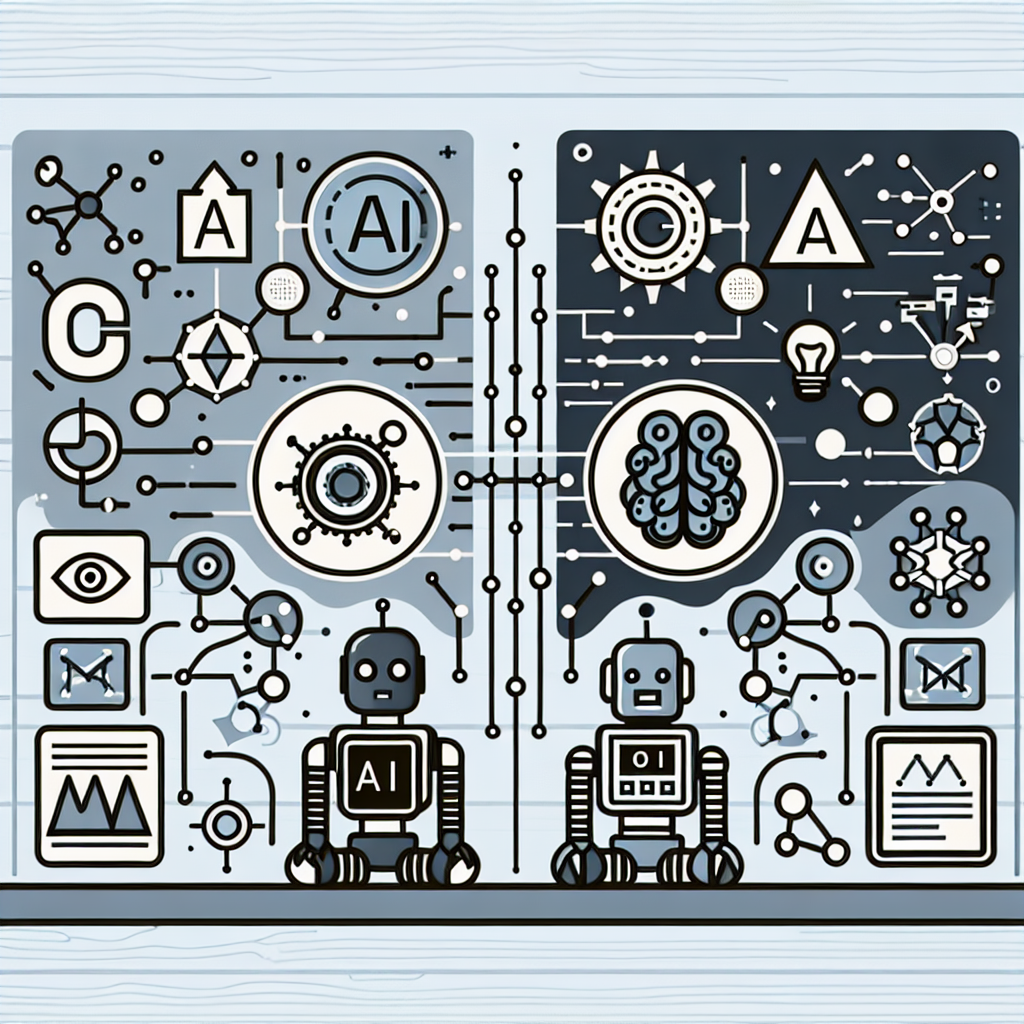Artificial intelligence (AI) and artificial general intelligence (AGI) are two terms that are often used interchangeably, but they refer to different concepts in the field of technology and artificial intelligence. Understanding the differences between AI and AGI is important in order to grasp the implications of each technology and how they are shaping the future of society.
AI is a term that refers to machines that are designed to perform tasks that would normally require human intelligence, such as visual perception, speech recognition, decision-making, and language translation. AI systems are programmed to perform specific tasks based on pre-defined rules and algorithms, and they are capable of learning from data and improving their performance over time.
On the other hand, AGI refers to machines that are designed to perform any intellectual task that a human can do. AGI systems are able to think, learn, and adapt to new situations in a way that is similar to human intelligence. AGI systems are not limited to specific tasks or domains, and they have the ability to generalize their knowledge and skills across different domains.
One of the key differences between AI and AGI is the level of intelligence and autonomy that these systems possess. AI systems are designed to perform specific tasks and are limited by the rules and algorithms that are programmed into them. AGI systems, on the other hand, have the ability to learn and adapt to new situations, and they have the potential to exhibit human-like intelligence and creativity.
Another important difference between AI and AGI is the level of human intervention that is required. AI systems are typically designed to assist humans in performing tasks, such as processing data, making decisions, and automating repetitive tasks. AGI systems, on the other hand, have the potential to operate autonomously and make decisions independently of human input.
The implications of AI and AGI are vast and far-reaching, and they have the potential to revolutionize many aspects of society, including healthcare, transportation, finance, and education. AI systems are already being used in a wide range of applications, such as virtual assistants, autonomous vehicles, and predictive analytics.
AGI systems have the potential to have an even greater impact on society, as they have the ability to perform a wide range of tasks that would normally require human intelligence. AGI systems could potentially automate many jobs that are currently performed by humans, leading to significant changes in the job market and economy.
However, there are also many ethical and societal implications of AGI that need to be considered. For example, there are concerns about the potential for AGI systems to outperform humans in many tasks, leading to issues of job displacement and economic inequality. There are also concerns about the potential for AGI systems to make decisions that are harmful or biased, leading to issues of accountability and transparency.
Despite these concerns, the development of AGI has the potential to bring many benefits to society, including increased productivity, improved efficiency, and new opportunities for innovation. It is important for researchers, policymakers, and industry leaders to work together to ensure that the development of AGI is done in a responsible and ethical manner.
In conclusion, AI and AGI are two distinct concepts in the field of artificial intelligence, and they have the potential to revolutionize many aspects of society. While AI systems are already being used in a wide range of applications, AGI systems have the potential to exhibit human-like intelligence and autonomy. Understanding the differences between AI and AGI is important in order to grasp the implications of each technology and how they are shaping the future of society.
FAQs:
Q: What are some examples of AI applications?
A: Some examples of AI applications include virtual assistants (such as Siri and Alexa), autonomous vehicles, predictive analytics, and fraud detection.
Q: What are some examples of AGI applications?
A: AGI applications are still in the early stages of development, but some potential examples include robots that can perform a wide range of tasks, such as cleaning, cooking, and caregiving.
Q: What are some ethical concerns related to AI and AGI?
A: Some ethical concerns related to AI and AGI include issues of job displacement, economic inequality, accountability, transparency, bias, and privacy.
Q: How can we ensure that the development of AGI is done in a responsible and ethical manner?
A: It is important for researchers, policymakers, and industry leaders to work together to establish guidelines and regulations for the development of AGI and to ensure that ethical considerations are taken into account throughout the development process.

